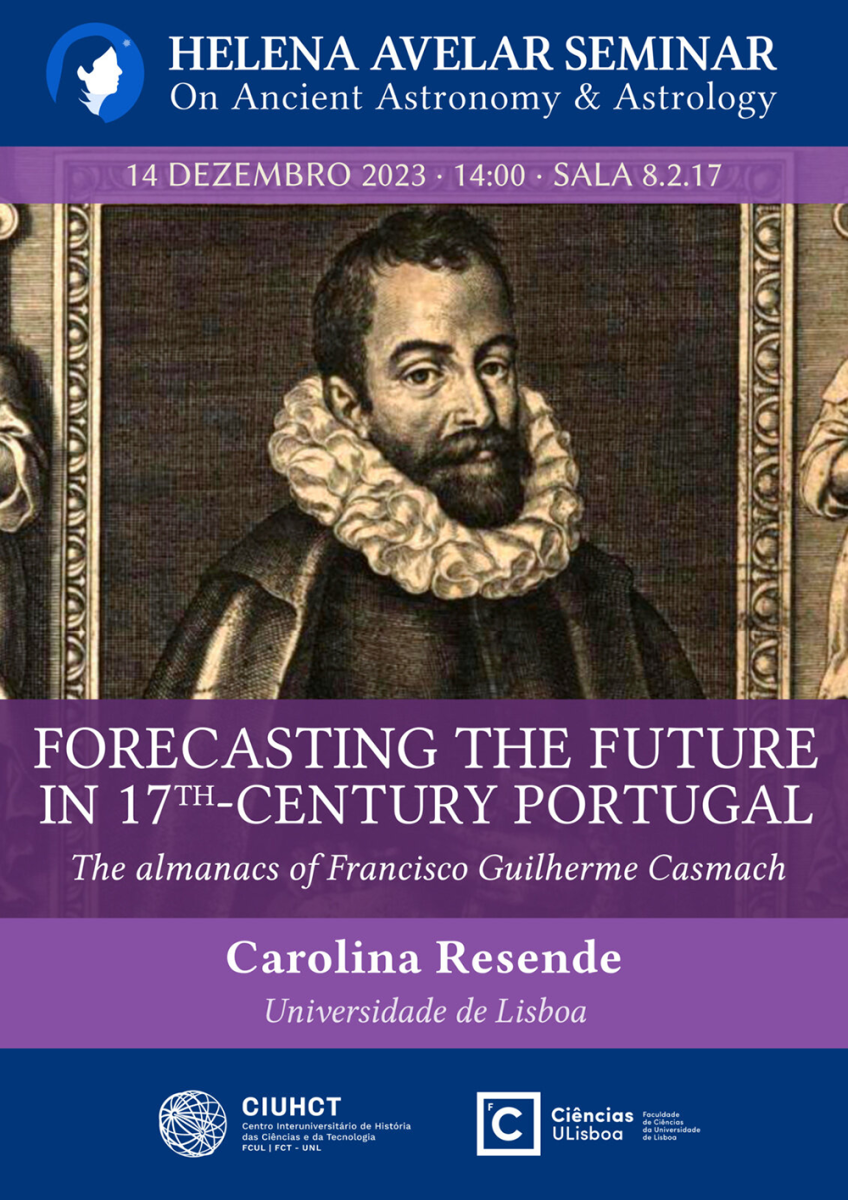Por Carolina Resende (Universidade de Lisboa).
Among seventeenth-century Portuguese productions, the two astrological almanacs written by Francisco Guilherme Casmach (1569-?) stood out for their rich prose and content. Written in 1644 and 1646, shortly after the 1640 Restoration, they gained prominence for supporting the new political regime and for criticising Manuel Galhano Lourosa (fl. 1643-1674), who he accused of appropriating the authorship of a manuscript about a plague of locusts that would have occurred in 1639. Previous works have addressed the almanacs in relation to this quarrel and their political content. This investigation, however, seeks to go beyond past considerations, focusing instead on the analysis of Casmach’s astrological techniques and knowledge, while demonstrating the author’s attempts to elevate the genre and his efforts to advocate for a practice that was under strong criticism in the early modern period. By shedding light on the accusations launched between Casmach and Lourosa, and by demonstrating their different methods and communications to the public, this work will contribute to the growing scholarship on astrological knowledge and practices in seventeenth-century Portugal, a time in which mathematical precision was at the centre of the debate.


















